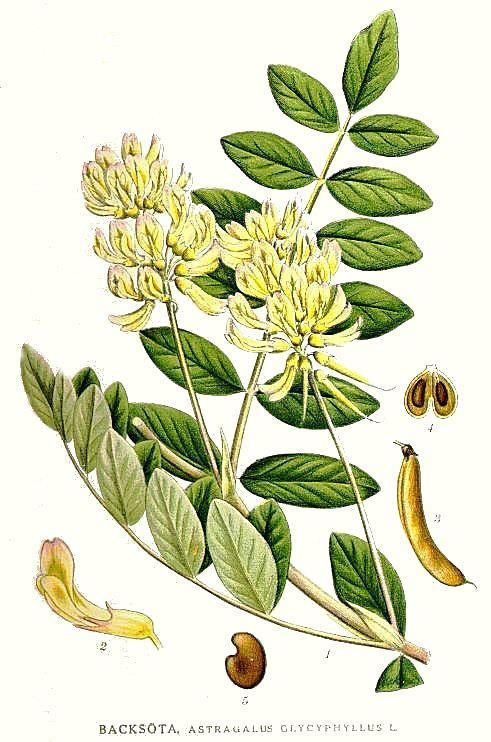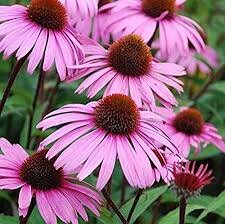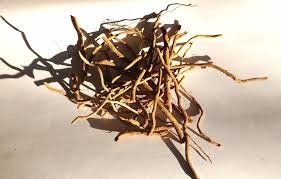Molecular biologist Kevin Spelman on how to power up your cannabis meds with botanicals

Kevin Spelman, Ph.D., MCPP is a molecular biologist, researcher, clinician, educator, and industry consultant. He has advised the White House, the US Department of Defense, and foreign governments on issues and policies concerning natural products. As a clinician, he practiced clinical phytotherapy for 20 years in the US and Latin America. As a researcher, Dr. Spelman used molecular techniques to illuminate the pharmacology of phytochemicals on human physiology. He is the author of 29 peer-reviewed publications on medicinal plants. He has also conducted research on infectious diseases and natural products as a Marie Curie Research Fellow in the European Union. As a Postdoctoral Fellow at the National Institutes of Health, Dr. Spelman investigated brain cancer, as well as CB1 and CB2 (cannabinoid) receptor binding. He has also been a senior R&D executive for multiple companies over the last decade.
What can I do to boost my immune system? Can plant medicines significantly help?
Despite much mainstream medical opinion to the contrary, they absolutely can. To understand how to “boost” the immune system it’s important to understand the three ways botanicals can augment immune cell response in advance of an illness and once it has attacked.
Nourish — Our immune cells derive from our bone marrow and healthy bone marrow is key to having the right immune cells that are ready to respond to whatever comes at them. Whether we need to decrease an immune response or ramp it up to fight an infection, keeping the entire system well-nourished is like having an emergency plan prepared and ready to go.
Respond — Plant remedies offer a more complex modulation than pharmaceutical medications, which either stimulate or inhibit but not both. Certain phytonutrients can create entirely different responses in our bodies depending on our health and our illness. In the case of the immune system, this allows a modulation of response, potentially increasing immune function when it is feeble or decreasing it when it is overly excited.
Adapt — to different attackers. It’s important that our coping strategies for stressful situations (such as quarantines) don’t get the best of us. Our stress response is mainly run by the Hypothalamus-Pituitary-Adrenal axis and there are herbs called adaptogens that can strongly support the HPA axis. This is key to a healthy immune response because too much of the frenetic energy of the HPA axis can suppress immune function.
What role can cannabinoids play in this?
Endocannabinoids are made on-demand, that is they respond to physiological shifts or changes in our lives to which we must adapt. This suggests that our ECS maintains homeostasis by nudging our internal environment to respond to the changes in our external environment. Exogenous cannabinoids such as CBD and THC plus other cannabinoids can support this ability to adapt to external threats such as neurological and immunological issues.
What botanicals would you recommend and at what doses?
The key to getting the most from botanicals is using the correct dose and buying the freshest product. The correct dose is typically significantly larger than what the label recommends and the freshest product is often available as cultivated or wildcrafted herbs.
TO NOURISH:
- Astragalus – raw herb 4000 – 8000 mgs/day; powdered extracts 500 – 1000 mg/day
- Selenium 200 mcg/day
- Vitamin D 2000 IU/day
- Vitamin C 3000 mgs/twice a day.

TO RESPOND:
Echinacea. Using up to 3000 mg /day (raw root) or up to 500 mg/day of a powdered extract can help in mounting a robust immune response if infected.
While there was one NIH study on Echinacea that resulted in failure, a number of analyses of all of the available studies (called a meta-analysis) have shown a positive effect. Results from meta-analyses outweigh results from any one study.

TO ADAPT:
- Ashwagandha up to 6000 mg/day raw herb or up to 750 mg/day of powdered extracts.
- Ginseng and maybe cannabinoids but I’ll get more specific about that a bit later.

So…what’s more effective, tinctures or capsules?
It really depends on what you are after, liquid dosing or capsule dosing. At higher doses, ground-up herb is the cheapest way to go. Tinctures work well but tend to be pricier.
I’ve read contradictory things on cannabis. Will it depress or enhance immune functioning?
The jury is still out. There is evidence that says cannabinoids can be immunosuppressive as well as upregulating (increasing the cellular response) of immune function. Most likely, it will depend strongly on who the patient is, what kind of immune issue they are having, or whether cannabis is a friend or foe in preventing or treating infections. One aspect appears to be fairly consistent though: in cases of tissue damage from overactive immune activity that goes on for too long or too strongly can damage tissue in the body, cannabinoids appear to be helpful in this case.
What about microdosing cannabinoids. Can you really get a therapeutic response from low doses that you don’t even feel?
As Ethan Russo, MD, PhD suggests, It is not necessary to be high when using medical cannabis for most conditions. With tinctures and soft gels in oils, I like 4:1 or 3:1, especially as they attenuate the side effects of THC and lessen the high. With ingestibles, less than 2 mgs of THC could have an effect on things like inflammation, pain and mood without the high.
And CBD?
There is an abundance of immune research showing very significant anti-inflammatory activity for CBD. However, it is my opinion, as well as that of many other clinicians, that most of the suggested dosing in the CBD marketplace is too low to get the benefits or the optimal effects. I would start with 30 mgs a couple of times a day. If it does nothing, take more. Rare people will need far less, others will need far more. If I were having an acute inflammatory issue I’d up my dose to over 100 mg CBD.
“The correct dose [of botanicals] is significantly larger than what the label recommends”
Are there any foods I should eat/avoid?
Avoid… high sugar, alcohol, nutrient-deficient foods such as white flour, packaged foods and heavily processed foods. A good strategy is to limit your shopping to the perimeters of grocery stores to avoid the processed stuff in the middle. Also, if you pick up a packaged food item and can’t pronounce the ingredients on the label, walk away from it.
Eat More…. plants, including full-spectrum foods such as berries, leafy greens, fresh veg, mushrooms (shitake, maitake and chaga, which can be used as part of a soup stock). Good quality meats and fish can also be a nice protein addition to stir-fries, soups, salads etc.
Where do I find raw herbs or herbalists? And how will I know their products are good?
Checking in with your local herbalist in your community, town or city can be a great relationship to build. Make sure that they are members of the American Herbalists Guild as this will guarantee a certain amount of professionalism.
What about growing my own?
As cannabis growers know, growing your own herbs can be very therapeutic in many ways. Being outside, being part of the life process, and ending up with a therapeutic product are all very rewarding steps in making your own remedies.
